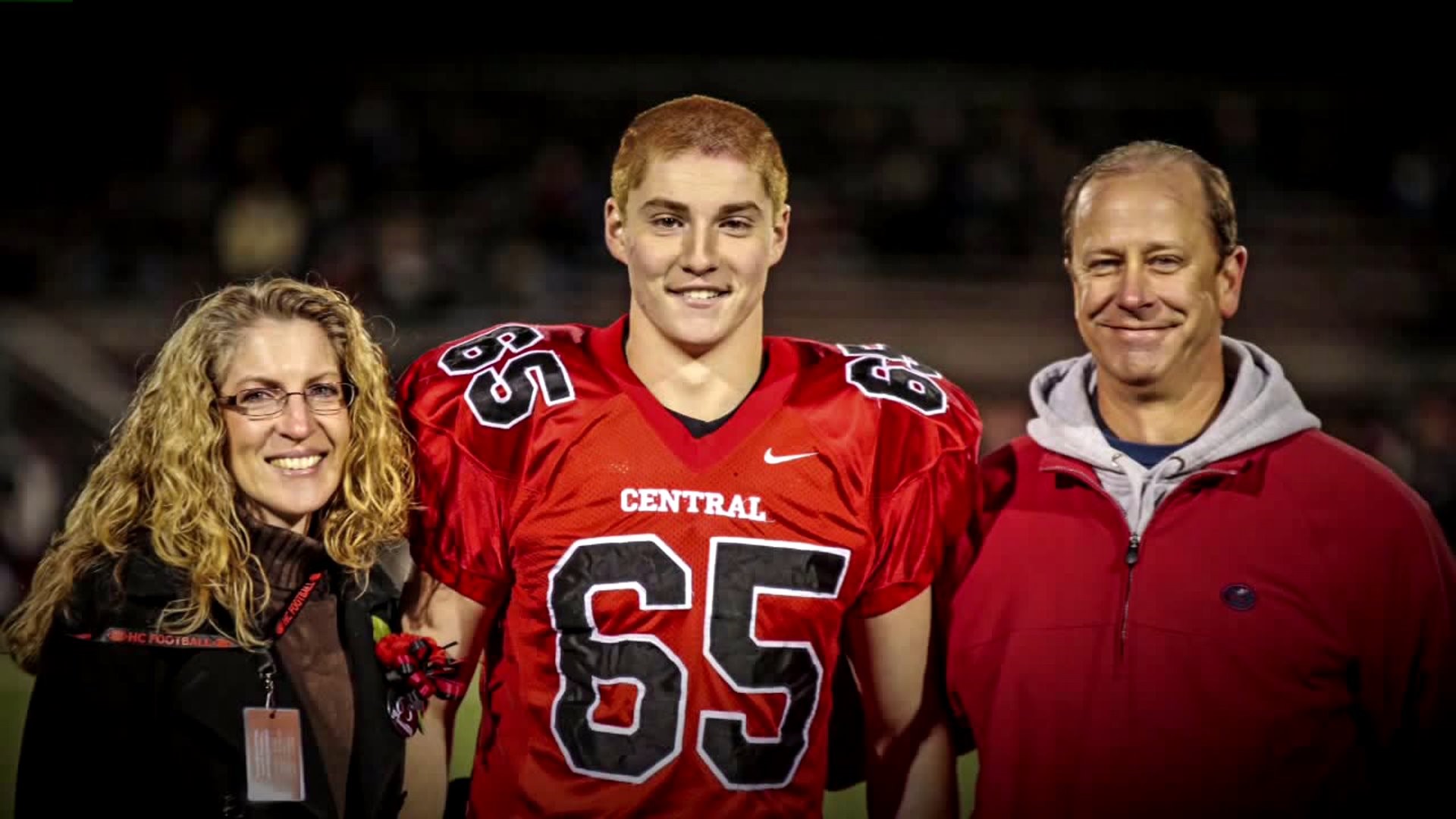STATE COLLEGE, Pa. -- Two years ago, Timothy Piazza was pledging the Beta Theta Pi fraternity at Penn State, when he died after a night of heavy drinking at the fraternity house. Police say it was all part of a hazing ritual.
Shockwaves from his death went all the way to Harrisburg with Governor Tom Wolf signing into effect the Timothy J. Piazza Anti-Hazing Law in October.
People can now be charged with a felony for hazing and students are given immunity from prosecution for calling the police.
"If you're underage and intoxicated or whatever - you can call and not get in trouble, that's definitely the best thing that came out of it, I think. That's a really good law," said David Patalino, sophomore.
"I'm glad that they implemented these laws because they need to take action for what happened to Timothy Piazza," said Noelle Selden, freshman.
Prosecutors charged his fraternity brothers in connection with his death. Ryan Burke of Scranton was sentenced to 27 months probation in July of last year for giving Piazza alcohol. Gary Dibelio II, also from Scranton, pleaded guilty last month to hazing charges.
Last week the school created an anti-hazing center in his name with President Eric Barron saying,
"University leaders will now have a dedicated center for the study of best practices and assessment in fraternity and sorority life across the country."
I think that something really bad happened and I think that Penn State realized that they needed to change a lot. It's been a lot more quiet and people have been a lot more serious at things - especially at parties," said Tacie Telesky, sophomore.
State College officials say Beta Theta Pi was closed to students one month after Piazza passed away and since it's been permanently banned on campus.
"The school can have a stranglehold on fraternities in general but I think the changes are going in the right direction for the most part," said Patalino.
Piazza's family also filed a federal lawsuit late yesterday against 28 former members of the fraternity alleging wrongful death and negligence.
The family reached an agreement with Penn State University out of court with a commitment to student safety.

